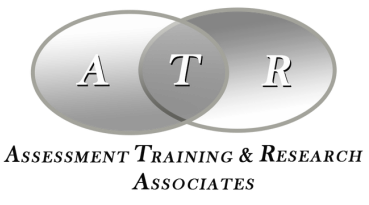Assessment Services
ATR assessments are developed using the structure of the Addiction Severity Index (ASI) assessment tool. The ASI is a semi-structured interview designed to address seven potential problem areas in substance-abusing patients: medical status, employment and support, drug use, alcohol use, legal status, family/social status, and psychiatric status. ATR’s skilled interviewers gather information on recent (past 30 days) and lifetime problems in all seven areas. The ASI provides an overview of problems related to substance, rather than focusing on a single area. The outcome of the assessment provides information on the specifics of an individual’s addiction and mental health needs and all potential barriers and problem areas specific to addressing the individual’s addiction and mental health concerns. The information gathered provides specific, accurate recommendations for all life areas on how to address the individual’s addiction and mental health concerns, and specific ancillary services needed to cease addiction problems, improve mental health status, and maintain improved quality of life sustainability.
ATR uses the Diagnostic and Statistical Manual of Mental Disorders (DSM) version 5, to diagnose each client at the point of assessment. Diagnosis is important because licensed and certified substance use disorder treatment programs cannot accept patients that do not meet medical necessity based on DSM coding criteria.
ATR uses the American Society of Addiction Medicine (ASAM) third edition to determine optimal placement in treatment for each individual. Research beginning in 1994 under the leadership of David Gastfriend, M.D. at Harvard Medical School made the ASAM the most researched and nationally accepted placement criteria in addiction treatment (Gastfriend, 2004).
ATR uses the Diagnostic and Statistical Manual of Mental Disorders (DSM) version 5, to diagnose each client at the point of assessment. Diagnosis is important because licensed and certified substance use disorder treatment programs cannot accept patients that do not meet medical necessity based on DSM coding criteria.
ATR uses the American Society of Addiction Medicine (ASAM) third edition to determine optimal placement in treatment for each individual. Research beginning in 1994 under the leadership of David Gastfriend, M.D. at Harvard Medical School made the ASAM the most researched and nationally accepted placement criteria in addiction treatment (Gastfriend, 2004).
Continuing Education Hours
ATR provides master level staff to present current, relevant, evidence based, continuing education hour topics. ATR has a long standing history as an approved educator of continuing education hours for the California Consortium of Addiction Programs and Professionals, Board of Behavioral Science (BBS), and the California State Bar for Minimum Continuing Legal Education (MCLE) trainings. ATR has presented education topics for the California State Dept of Health Care Services (DHCS), California Consortium of Addiction Programs and Professionals (CCAPP), California Association for Alcohol/Drug Educators (CAADE), conferences. ATR has also presented numerous educations for the California State Bar Association, specific to family law, criminal prosecutor defense, and elder law, California State Family Court Mediators, and events specific to mental health specialist seeking hours from the Board of Behavioral Sciences (BBS). Our knowledge is broad based in all areas of addiction, mental health, and professional business development. Our educational events cover an expansive range of addiction topics in areas affecting mental and medical health, families, legal and social consequences, health and wellness, employment, and problems specific to those with co-occurring disorders, elders, and youth. ATR also has MBA professionals available to provide CEU topics specific to professional development. Topics include developing a private practice, marketing, current state and regulatory requirements, Medi-Cal regulations and business practice, ICD-10 coding, other business and regulatory education, and development of a non-profit organization or private practice. ATR professionals provide CEU trainings to multiple California State County offices and court systems including: Family, Criminal, and Dependency Court, Public Defenders and District Attorney office(s), and other State Bar attorney venues. ATR also provides educations to School Districts, public and private agencies, professional Employee Assistance Programs (EAP) and Human Resource (HR) organizations, law enforcement, hospitals, and other medical entities.
Expert Witness Testimony
ATR staff members are master level licensed and certified professionals specializing in addiction, mental health, and professional business development. ATR provides expert witness testimony for attorneys specializing in criminal defense and prosecution, professional licensing and certification board re-instatement, alternative sentencing, and civil, and social security disability (SSI) approval.
Professional Substance Abuse Treatment Services
ATR has master level, licensed, and certified professionals in addiction and mental health for individuals needing treatment working in high profile jobs and/or a need for complete discretion. All individual treatment services fit qualifications for court-ordered, employment, or multiple state Dept of Motor Vehicle (DMV) and DUI court required services.
Professional Business Development Services
ATR has MBA professionals available to provide CEU topics specific to professional personal and practice development. ATR’s professionals also provides professional consultation and assistance for developing a private practice, marketing, current state and regulatory requirements, Medi-Cal regulations and business practices, other substance abuse business and regulatory requirements, and development of a non-profit organization and private practices

